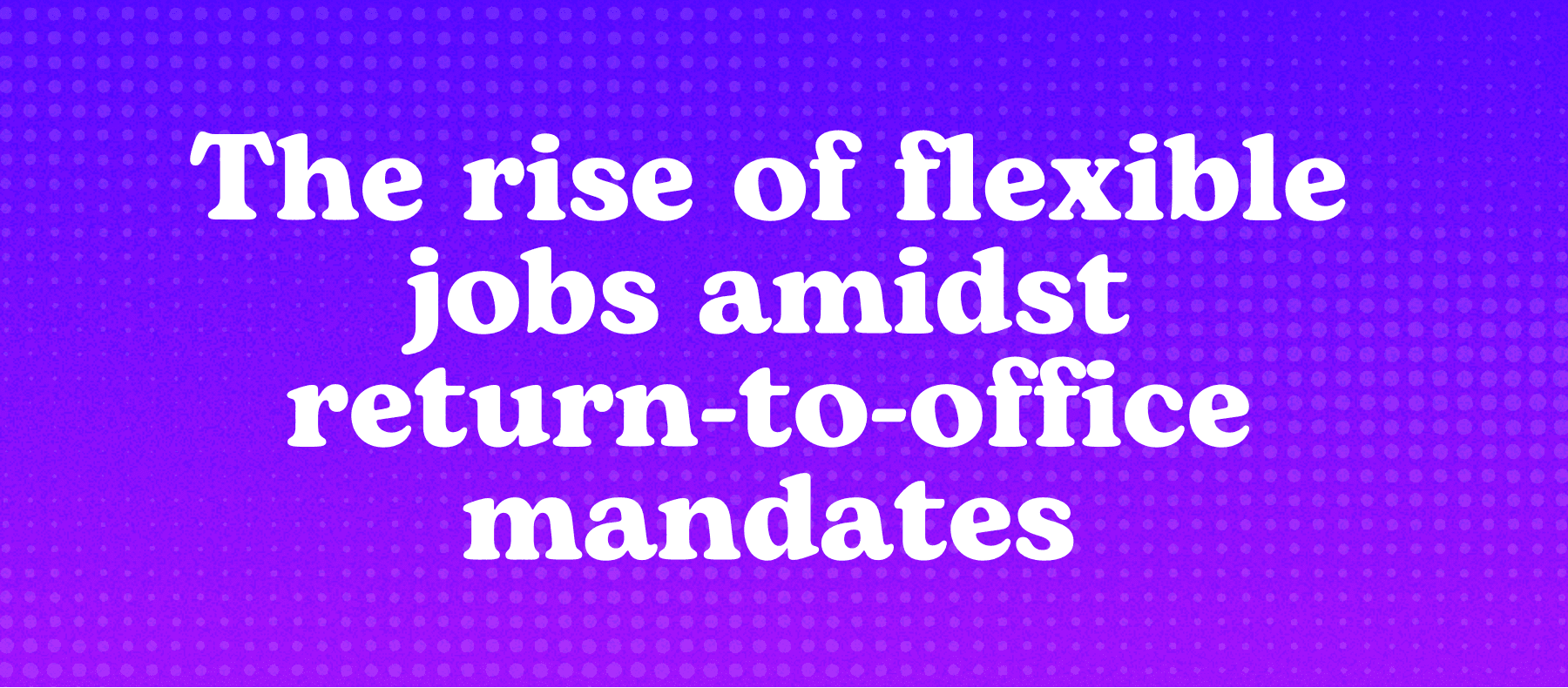The rise of flexible jobs amidst return-to-office mandates
Flexa's latest Flexible Working Index reveals that the flexible job market is not only holding strong but actually growing.
17th Apr 2024

Despite a growing trend of companies pushing for a return to the office (RTO), our latest Flexible Working Index reveals that the flexible job market is not only holding strong but actually growing.
The Index analyses data from Flexa and looks at a sample of over 4,000 job adverts and 840,000 job searches, as well as the preferences expressed by over 8,500 job seekers between January and March 2024.
A key finding in the data was 62% more flexible jobs are currently being advertised compared to this time last year. This is a remarkable growth, especially considering the broader labour market trends of shrinking wages, job vacancies, and rising unemployment rates.
So what's driving this growth in flexible jobs, even as some companies like Dell, Boots, and IBM are penalising or restricting remote work?
One key factor is the unwavering demand from job seekers for remote work options. Over the last quarter, half of workers were searching for "fully remote" roles on average, with demand increasing by 11% between January and March (up from 47% to 52%).
Similarly, just under half (42%) of workers were searching for "remote-first" jobs over the last quarter, with demand rising slightly by 5% between January and March (up from 41% to 43%).
This data suggests that despite RTO mandates, workers are holding out for the remote work options that they've grown accustomed to and rely on for better work-life balance, productivity, and wellbeing. Companies that fail to offer these options risk losing out on top talent to more flexible competitors.
Interestingly, workers seem more willing to let go of some of the more novel forms of location-based flexibility, like "work from anywhere" schemes. The Index found that 27% fewer workers were searching for these types of arrangements by March compared to January (down from 33% to 24%).
So what does this all mean for the future of flexible work? 🔮
It's clear that core flexible work options like fully remote and remote-first roles are here to stay, and companies that embrace these models will have a competitive edge in attracting and retaining top talent.
At the same time, the decline in demand for some of the more novel or niche forms of flexibility suggests that workers are prioritising the core benefits that have the greatest impact on their day-to-day lives and wellbeing.
As Molly Johnson-Jones, Co-founder and CEO of Flexa, notes:
"The employer-led labour market and RTO-era is shining a light on what employees really want. And whilst many are willing to let more novel forms of flexibility slide (including "work from anywhere" schemes and unlimited annual leave), job seekers' non-negotiable criteria for new roles is telling.
Employees are right to hold out for core flexible working benefits (like fully remote and remote-first roles, and enhanced parental leave) that they won't compromise on. The alternative risks employers and employees losing out if individuals find themselves in roles that don't offer the working environments they need to be happy and productive. Many employers already know this. It's because of these true flexible working champions that the future is still bright for flexible job hunters, and that flexible job vacancies are continuing to grow in number in spite of wider market forces."
As we navigate this new era of work, it's clear that flexibility will remain a key differentiator and driver of success for both companies and individuals alike. By staying attuned to workers' evolving needs and preferences, and by championing the core flexible work options that matter most, we can build a future of work that is more inclusive, equitable, and human-centric.